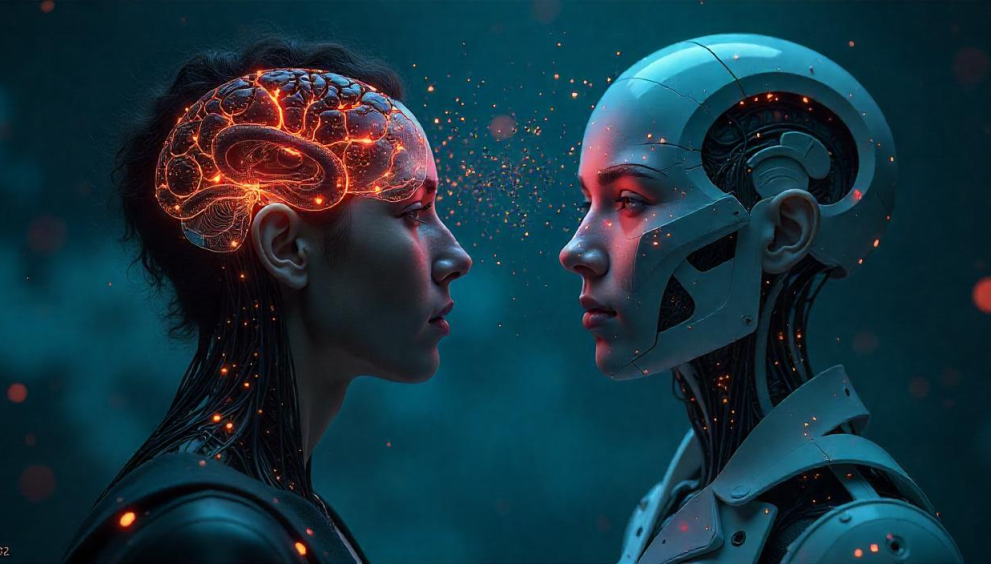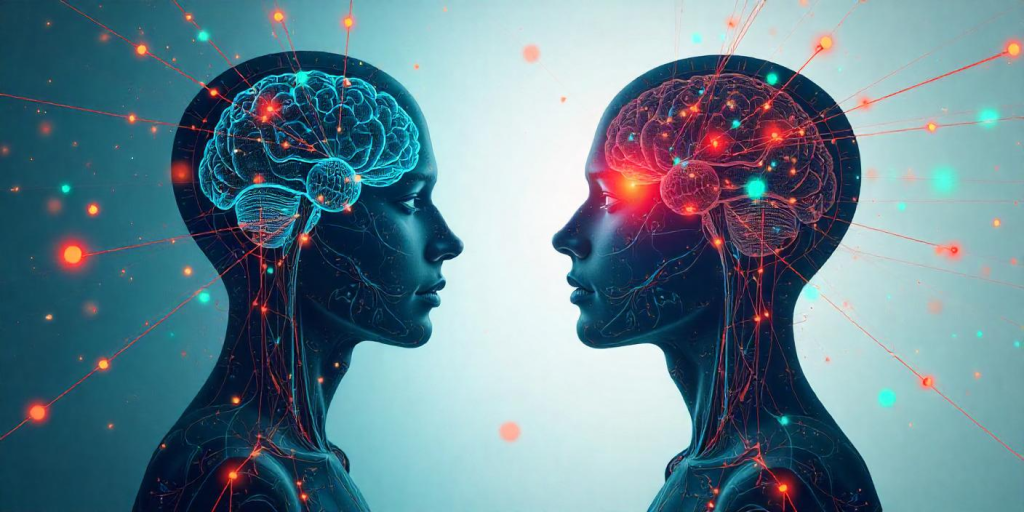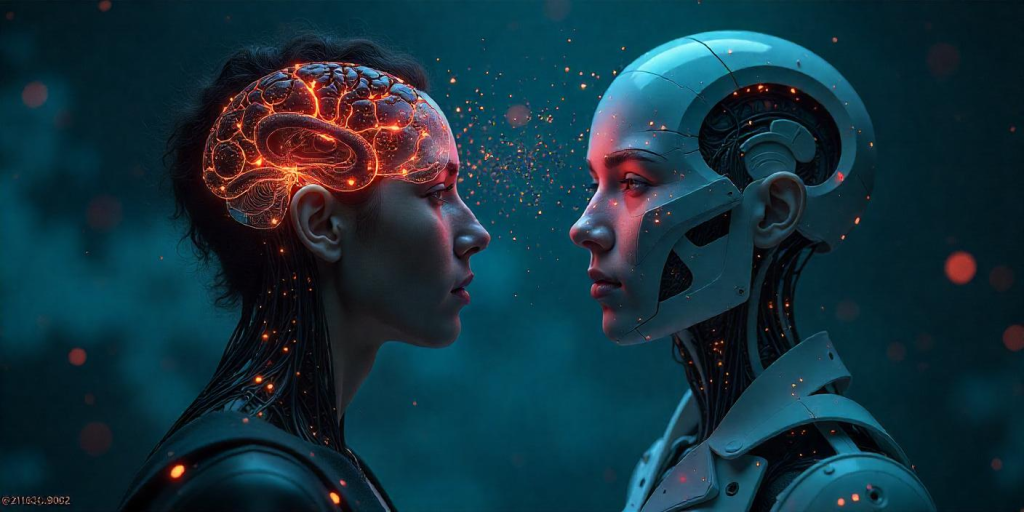What Happens When AI Lies?

What Happens When AI Lies? Deepfakes and Ethical Dilemmas
Artificial Intelligence (AI) is changing our world at an incredible pace. From chatbots that answer our questions to tools that create lifelike art, AI has made life easier and more exciting. But with great power comes great responsibility, and AI’s ability to create false or misleading content raises some serious questions.
One of the most troubling aspects of AI deception is the rise of deepfakes—ultra-realistic fake videos, audio, and images that can make people appear to say or do things they never did. These AI-generated lies are creating ethical challenges that we need to address sooner rather than later.
What Are Deepfakes? Breaking Down the Technology
Deepfakes are AI-generated digital forgeries that use advanced algorithms to create incredibly convincing fake content. These fakes are made possible by machine learning techniques, specifically Generative Adversarial Networks (GANs). GANs work by training two AI systems against each other—one generates fake content, while the other tries to detect it. This process improves the quality of the fake until it becomes almost indistinguishable from real footage.
How Do Deepfakes Work?
- Gathering Data – AI systems collect videos, images, and audio recordings to analyze someone’s features, voice, and expressions.
- Training the AI – Algorithms learn patterns and details, allowing the AI to create realistic imitations.
- Generating Fake Content – The AI combines what it has learned to produce synthetic content that looks and sounds real.
When Deepfakes Are Used for Good
Not all deepfakes are harmful. In fact, they have some exciting and positive applications:
- Movies and TV: Filmmakers use deepfakes to bring back deceased actors or de-age performers for flashback scenes.
- Education: Teachers can use deepfakes to recreate historical speeches and bring history to life.
- Healthcare: AI tools help patients regain their voice through voice synthesis technologies.

The Dark Side of Deepfakes
Unfortunately, deepfakes also have a dangerous side, and many people are using them for unethical purposes:
- Spreading Misinformation: Fake videos can be used to promote lies, manipulate public opinion, and fuel conspiracy theories.
- Harassment and Exploitation: People’s faces are often added to explicit content without their consent, causing emotional harm.
- Financial Scams: Fraudsters use deepfakes to impersonate CEOs or employees, tricking businesses into wiring money to fake accounts.
The Ethical Questions AI Raises
As AI technology becomes more advanced, it’s creating moral and ethical challenges that we can’t ignore.
1. Can We Trust What We See?
Deepfakes make it harder to trust photos, videos, and even live streams. This erosion of trust is dangerous because it can:
- Undermine confidence in journalism and media.
- Create political chaos by spreading false information about leaders.
- Make it easier for criminals to deceive people.
2. What About Privacy?
AI-generated content often uses someone’s likeness without permission, violating their privacy. This raises important questions about:
- Consent: Should people have the right to control how their image is used?
- Safety: How can we protect individuals from harm caused by AI lies?
3. Can Laws Keep Up?
The legal system hasn’t caught up with AI technology. While some countries have started passing laws to regulate deepfakes, challenges remain:
- AI technology evolves so quickly that laws become outdated almost as soon as they’re written.
- Free speech protections can make it tricky to regulate AI-generated content without violating rights.
How AI Lies Are Impacting Society
1. Politics and Democracy
Fake videos and audio clips of politicians can be used to spread false information, influencing elections and undermining democracy.
- Election Interference: Deepfakes have already been used to manipulate voters in several countries.
- Propaganda Tools: Authoritarian regimes may use AI to silence dissent and promote their agendas.
2. Social Media and Misinformation
Social media platforms are filled with AI-generated content, making it harder for users to tell what’s real and what’s fake. This leads to:
- Trust Issues: People may lose faith in legitimate news sources.
- Cyberbullying: Victims of fake videos often face harassment and abuse.
- False Accusations: AI lies can lead to innocent people being blamed for crimes they didn’t commit.
3. Financial Fraud
Businesses are losing millions due to AI scams:
- Voice Cloning: Criminals use deepfake audio to impersonate executives and approve fake transactions.
- Fake Videos: Fraudulent visuals can convince employees to share sensitive information.
- Cybersecurity Challenges: Companies are forced to spend more money on tools to detect and prevent AI fraud.
How Can We Fight Back Against AI Lies?
1. Developing AI Detection Tools
Researchers are using AI to fight AI. New tools analyze videos and audio for signs of manipulation, such as unnatural movements or digital artifacts.
2. Media Literacy Programs
Teaching people to spot fake content is one of the best defenses against misinformation. Schools and organizations can:
- Offer classes about digital literacy.
- Promote fact-checking habits.
- Encourage skepticism when consuming online content.
3. Stronger Laws and Policies
Governments need to step up and create stricter rules for AI technology:
- Regulate Deepfake Creation: Require companies to label AI-generated content.
- Protect Victims: Ensure legal action can be taken against those who misuse AI.
- Global Cooperation: Countries need to work together to create international standards.
The Future of AI and Ethics
AI will only get smarter, which means the challenges we face today will likely grow. To protect ourselves, we need to:
- Keep developing better tools to detect fakes.
- Push for stronger regulations before the problem gets worse.
- Educate the public about the risks and benefits of AI.
Final Thoughts: The Ethics of AI Lies
AI has the potential to make our lives better, but it also poses real dangers. Deepfakes and other AI-generated lies threaten trust, privacy, and security. If we want to reap the benefits of AI without falling victim to its dark side, we need to act now.
We can:
- Use AI responsibly.
- Educate ourselves and others.
- Advocate for stronger laws and policies.
The question isn’t whether AI will keep advancing—it will. The real question is whether we’ll be ready to handle the challenges it brings.

 English
English 















